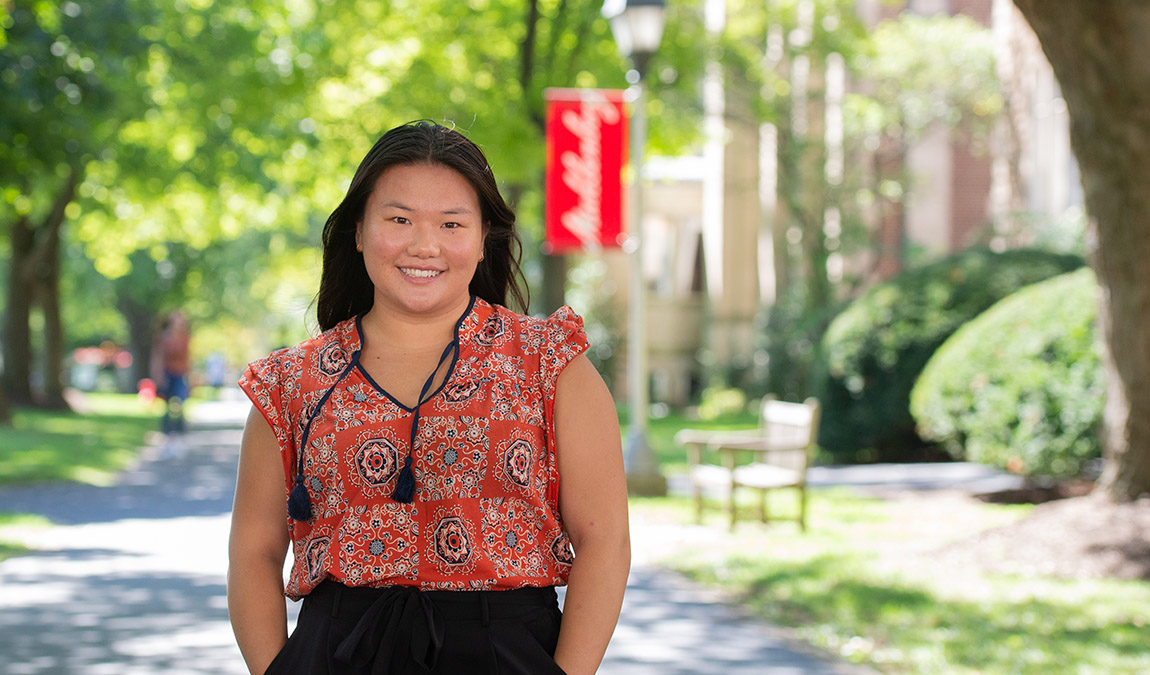Senior Researches the Sustainability of Feminine Hygiene Products
This fall, Claire Pancoast ’22 intends to interview peers to discover what it might take for them to switch to more environmentally friendly options.By: Meghan Kita Tuesday, September 7, 2021 09:43 AM

In the course of her summer research on the sustainability of feminine hygiene products, Claire Pancoast ’22 discovered some surprising numbers: about 70 percent of people who menstruate use tampons, and each of those individuals will use approximately 11,000 tampons between menarche and menopause.
“The plastic wrappers tampons come in take centuries to biodegrade,” says Pancoast, a psychology and sustainability studies double major and RJ Fellow. “They never really leave the earth at all—the chemicals go into the earth.”
Pancoast spent the summer gathering data on the environmental, health-related and monetary costs of different feminine hygiene options as well as the psychology of behavior. This fall, she will use what she’s learned to interview peers about what it would take for them to switch to more sustainable products (such as menstrual cups, period underwear or organic cotton tampons without applicators).
“I have a feeling that many people, when we first get our periods, we choose our product and we stick to it,” Pancoast says. “Even the thought of buying something new was something I wasn’t open to, and it was interesting to feel that thought process.”
Previously, Pancoast conducted research for psychology classes, but she wanted to work on a project that would incorporate both her majors. Professor of Biology and Sustainability Studies and Director of Sustainability Studies Rich Niesenbaum helped her brainstorm the topic; Associate Professor of Psychology Erika Bagley is advising her and will continue to this fall.
Pancoast intends to conduct a qualitative study—that is, one with open-ended questions—to assess other students’ attitudes toward more sustainable products and how their attitudes might change when presented with the information she collected this summer about the waste generated by disposable pads and tampons with applicators.
“I think people might feel like, ‘Well, what does my period have to do with this?’ It’s about the group as a whole,” Pancoast says. “Ideally, my project would result in a lot of people wanting to change their products and wanting to become more environmentally friendly.”
